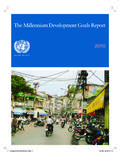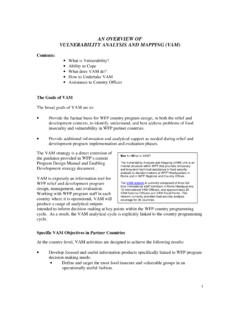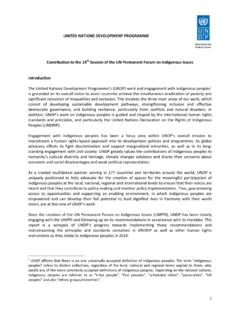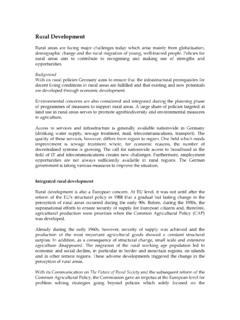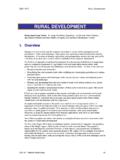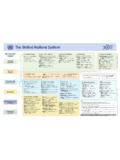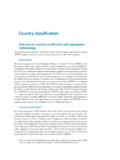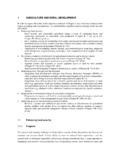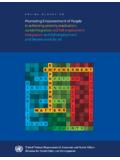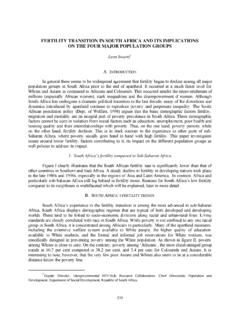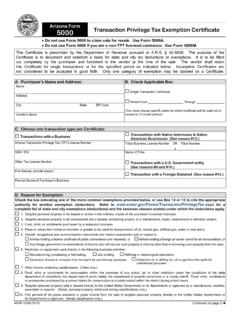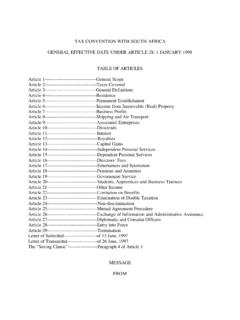Transcription of No. 4 CONVENTION ON THE PRIVILEGES AND IMMUNITIES …
1 No. 4. CONVENTION ON THE PRIVILEGES AND IMMUNITIES . OF THE UNITED NATIONS. Adopted by the General Assembly of the United Nations on 13 February 1946. Official texts in English and in French. This CONVENTION was registered ex officio by the Secretariat of the United Nations on 14 December 1946. CONVENTION SUR LES PRIVIL GES ET IMMUNIT S. DES NATIONS UNIES. Approuv e par l'Assembl e g n rale des Nations Unies le 13 f vrier 1946. Textes officiels anglais et fran ais. Cette CONVENTION a t enregistr e d'office par le Secr tariat de l'Organisation des Nations Unies le. 14 d cembre 1946. i6 United Nations Treaty Series 1946-1947. No. 4. CONVENTION ^ ON THE PRIVILEGES AND IMMUNI. TIES OF THE UNITED NATIONS, ADOPTED BY THE. GENERAL ASSEMBLY OF THE UNITED NATIONS ON. 13 FEBRUARY 1946. Whereas Article 104 of the Charter of the United Nations provides that the Organization shall enjoy in the territory of each of its Members such legal capacity as may be necessary for the exercise of its functions and the fulfilment of its purposes and Whereas Article 105 of the Charter of the United Nations provides that the Organization shall enjoy in the territory of each of its Members such PRIVILEGES and IMMUNITIES as are necessary for the fulfilment of its purposes and that representatives of the Members of the United Nations and officials of the Organization shall similarly enjoy such PRIVILEGES ajid IMMUNITIES as are necessary for the independent exercise of their functions in connection with the Organization.
2 Consequently the General Assembly by a Resolution adopted on the 13. February 1946, approved the following CONVENTION and proposed it for accession by each Member of the United Nations. Article I. JURIDICAL PERSONALITY. SECTION i. The United Nations shall possess juridical personality. It shall have the capacity: (a) To contract;. (&) To acquire and dispose of immovable and movable property;. (c) To institute legal proceedings. Article II. PROPERTY, FUNDS AND ASSETS. SECTION 2. The United Nations, its property and assets wherever lo cated and by whomsoever held, shall enjoy immunity from every form of 1 Came into force (see page 263 of this volume) on 17 September 1946 as regards United Kingdom o Great Britain and Northern Ireland by the deposit of the instrument of accession. i8 United Nations Treaty Series 1946-1947. legal process except insofar as in any particular case it has expressly waived its immunity shall extend to any particular case it has expressly waived its immunity. It is, however, understood that no waiver o immunity shall ex tend to any measure of execution.
3 SECTION 3. The premises of the United Nations shall be inviolable. The property and assets of the United Nations, wherever located and by whom soever held, shall be immune from search, requisition, confiscation, expropri ation and any other form of interference, whether by executive, administra tive, judicial or legislative action. SECTION 4. The archives of the United Nations, and in general all docu ments belonging to it or held by it, shall be inviolable wherever located. SECTION 5. Without being restricted by financial controls, regulations or moratoria of any kind, (a) The United Nations may hold funds, gold or currency of any kind and operate accounts in any currency;. (ft) The United Nations shall be free to transfer its funds, gold or currency from one country to another or within any country and to convert any currency held by it into any other currency. SECTION 6. In exercising its rights under Section 5 above, the United Nations shall pay due regard to any representations made by the Govern ment of any Member insofar as it is considered that effect can be given to such representations without detriment to the interests of the United Nations.
4 SECTION 7. The United Nations, its assets, income and other property shall be: (a) Exempt from all direct taxes; it is understood, however, that the United Nations will not claim exemption from taxes which are, in fact, no more than charges for public utility services;. (6) Exempt from customs duties and prohibitions and restrictions on imports and exports in respect of articles imported or exported by the United Nations for its official use. It is understood, however, that articles imported under such exemption will not be sold in the country into which they were imported except under conditions agreed with the Government of that country;. No. 4. so United Nations Treaty Series 1946-1947. (c) Exempt from customs duties and prohibitions and restrictions on imports and exports in respect o its publications. SECTION 8. While the United Nations will not, as a general rule, claim exemption from excise duties and from taxes on the sale of movable and immovable property which form part of the price to be paid, nevertheless when the United Nations is making important purchases for official use of property on which such duties and taxes have been charged or are charge able, Members will, whenever possible, make appropriate administrative arrangements for the remission or return of the amount of duty or tax.
5 Article III. FACILITIES IN RESPECT OF COMMUNICATIONS. SECTION 9. The United Nations shall enjoy in the territory of each Member for its official communications treatment not less favourable than that accorded by the Government of that Member to any other Government including its diplomatic mission in the matter of priorities, rates and taxes on mails, cables, telegrams, radiograms, telephotos, telephone and other communications; and press rates for information to the press and radio. No censorship shall be applied to the official correspondence and other official communications of the United Nations. SECTION 10. The United Nations shall have the right to use codes and to despatch and receive its correspondence by courier or in bags, which shall have the same IMMUNITIES and PRIVILEGES as diplomatic couriers and bags. Article IV. THE REPRESENTATIVES OF MEMBERS. SECTION 11. Representatives of Members to the principal and subsidiary organs of the United Nations and to conferences convened by the United Nations, shall, while exercising their functions and during the journey to and from the place of meeting, enjoy the following PRIVILEGES and im munities: (a) Immunity from personal arrest or detention and from seizure of their personal baggage, and, in respect of words spoken or written and all acts done by them in their capacity as representatives, immunity from legal process of every kind.
6 (a) Inviolability for all papers and documents;. No. 4. 22 United Nations Treaty Series 1946-1947. (c) The right to use codes and to receive papers or correspond ence by courier or in sealed bags;. (d) exemption in respect of themselves and their spouses from immigration restrictions, aliens registration or national service obliga tions in the state they are visiting or through which they are passing in the exercise of their functions;. (e) The same facilities in respect of currency or exchange restric tions as are accorded to representatives of foreign governments on tem porary official missions;. (/) The same IMMUNITIES and facilities in respect of their per sonal baggage as are accorded to diplomatic envoys, and also;. (g) Such other PRIVILEGES , IMMUNITIES and facilities not incon sistent with the foregoing as diplomatic envoys enjoy, except that they shall have no right to claim exemption from customs duties on goods imported (otherwise than as part of their personal baggage) or from excise duties or sales taxes.
7 SECTION 12. In order to secure, for the representatives of Members to the principal and subsidiary organs of the United Nations and to conferences convened by the United Nations, complete freedom of speech and ind pendance in the discharge of their duties, the immunity from legal process in respect of words spoken or written and all acts done by them in discharg ing their duties shall continue to be accorded, notwithstanding that the per sons concerned are no longer the representatives of Members. SECTION 13. Where the incidence of any form of taxation depends upon residence, periods during which the representatives of Members to the prin cipal and subsidiary organs of the United Nations and to conferences con vened by the United Nations are present in a state for the discharge of their duties shall not be considered as periods of residence. SECTION 14. PRIVILEGES and IMMUNITIES are accorded to the representa tives of Members not for the personal benefit of the irdividuals themselves, but in order to safeguard the independent exercise of their functions in connection with the United Nations.
8 Consequently a Member not only has the right but is under a duty to waive the immunity of its representative in any case where in the opinion of the Member the immunity would impede the course of justice, and it can be waived without prejudice to the purpose for which the immunity is accorded. No. 4. 24 United Nations Treaty Series 1946-1947. SECTION 15. The provisions of Sections n, 12 and 13 are not applicable as between a representative and the authorities o the state of which he is a national or of which he is or has been the representative. SECTION 16. In this article the expression "representatives" shall be deemed to include all delegates, deputy delegates, advisers, technical experts and secretaries of delegations. Article V. OFFICIALS. SECTION 17. The Secretary-General will specify the categories of officials to which the provisions of this Article and Article VII shall apply. He shall submit these categories to the General Assembly. Thereafter these cate gories shall be communicated to the Governments of all Members.
9 The names of the officials included in these categories shall from time to time be made known to the Governments of Members. SECTION 18. Officials of the United Nations shall: (a) Be immune from legal process in respect of words spoken or written and all acts performed by them in their official capacity;. (6) Be exempt from taxation on the salaries and emoluments paid to them by the United Nations;. (c) Be immune from national service obligations;. (d) Be immune, together with their spouses and relatives depend ent on them, from immigration restrictions and alien registration;. (e) Be accorded the same PRIVILEGES in respect of exchange facili ties as are accorded to the officials of comparable ranks forming part of diplomatic missions to the Government concerned;. (/) Be given, together with their spouses and relatives dependent on them, the, same repatriation facilities in time of international crisis as diplomatic envoys;. (g) Have the right to import free of duty their furniture and effects at the time of first taking up their post in the' country in question.
10 SECTION 19. In addition to the IMMUNITIES and PRIVILEGES specified in Section 18, th 'Secretary-General and all Assistant Secretaries-General shall be accorded in respect of themselves, their spouses and minor children, the No. 4. United Nations Treaty Series 1946-1947. PRIVILEGES and IMMUNITIES , exemptions and facilities accorded to diplomatic envoys, in accordance with international law. SECTION 20. PRIVILEGES and IMMUNITIES are granted to officials in the interests o the United Nations and not for the personal benefit of the indi viduals themselves. The Secretary-General shall have the right and the duty to waive the immunity of any official in any case where, in his opinion, the immunity would impede the course of justice and can be waived without prejudice to the interests of the United Nations. In the case of the Secre tary-General, the Security Counsil shall have the right to waive immunity. SECTION 21. The United Nations shall co-operate at all times with the appropriate authorities of Members to facilitate the proper administration of justice, secure the observance of police regulations and prevent the occur rence of any abuse in connection with the PRIVILEGES , IMMUNITIES and facili ties mentioned in this Article.
